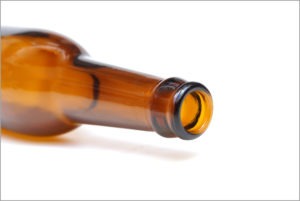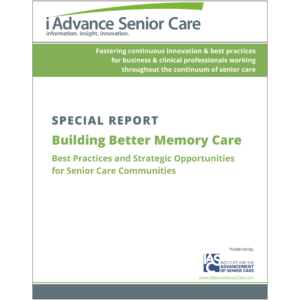Alcohol Abuse Among Seniors
Has a habit become a problem for any of your residents?
 Though many of us associate excessive alcohol consumption with young people — think frat houses and keg parties — the truth is alcoholism can affect people of any age. The Alcohol Addiction Center reports older adults have some of the highest rates of alcoholism, and these rates are on the rise. The National Council on Alcoholism and Drug Dependence reports nearly half of nursing home residents have an alcohol-related problem.
Though many of us associate excessive alcohol consumption with young people — think frat houses and keg parties — the truth is alcoholism can affect people of any age. The Alcohol Addiction Center reports older adults have some of the highest rates of alcoholism, and these rates are on the rise. The National Council on Alcoholism and Drug Dependence reports nearly half of nursing home residents have an alcohol-related problem.
Recognizing Alcohol Abuse in Seniors
Binge drinking, or high-risk drinking, is plaguing more seniors these days, the AAC reports. “Researchers define high-risk drinking in seniors as five or more drinks a day for men and four for women at least once a week during a year’s time. This rate of drinking has skyrocketed 65 percent in the past decade and now stands at 3.8 percent of the elderly population, or about 2.5 million seniors.”
High-risk drinking accounts for “20% of elderly admissions to psychiatric hospitals and 14% of senior emergency room admissions,” the AAC notes.
Signs of alcohol abuse among seniors may include:
- Insomnia
- Mood swings, irritability, and anxiety.
- Temporary blackouts or short-term memory loss.
- Drinking in private or hiding alcohol and its consumption.
- Isolation from friends and family.
- Drinking as a means of coping with loss or depression.
- Mixing alcohol and medications.
Many of these signs may be subtle or mimic symptoms of other conditions, such as depression or cognitive decline. Some, such as insomnia, may be chalked up to simple aging.
The Dangers of Alcohol Abuse
Alcohol abuse among seniors can have serious consequences, including:
- Falls. The National Council on Aging reports that one in four people over the age of 65 has a serious fall each year, and 2.8 million emergency room visits each year are related to falls. The AAC reports that 60% of these falls are related to alcohol use. Alcohol can rob anyone of balance and dexterity, two motor skills that many seniors already struggle to maintain.
- Health problems. Excessive alcohol consumption can be hard on the liver and other internal organs. It can also cause or worsen certain diseases and conditions, including diabetes, osteoporosis, high blood pressure, congestive heart failure, memory problems, and depression and other mood disorders.
- Drug interactions. Most Americans over the age of 65 take multiple medications, and alcohol can alter the effects of many medications or cause serious side effects. With each additional medication a person takes, the risk of an interaction increases. Medications for pain, high blood pressure, and diabetes may not be compatible with alcohol. Similarly, heart medications, antibiotics, cough syrups, sleeping pills, antacids, and cold medicines should not be mixed with alcohol.
One issue with alcohol use among seniors is that many don’t realize their age can actually change how the body processes alcohol. “Typically as we age our tolerance for alcohol decreases as our metabolism slows down,” the AAC reports. “According to the National Institute on Alcohol Abuse and Alcoholism this is primarily because as we age our body’s water content is reduced, which means the same amount of alcohol consumption gives a higher blood alcohol level.”
Guidelines from the National Institute on Alcohol Abuse and Alcoholism state people over the age of 65 should limit their alcohol consumption to no more than seven drinks per week.
Addressing the Issue
If you find any of your residents appear to be showing signs of an alcohol problem, it may be time to intervene. Even small interventions can make an impact, but it’s important to approach the topic carefully. Here are some tips to make that conversation a little easier:
- Be selective in your timing. It’s best to approach a resident who seems to be drinking too much when he or she is sober but feeling the effects of a drinking problem, such as a hangover or when recovering from a fall that occurred when the senior was inebriated. It’s hard to get through to someone about problem drinking when they’re drunk or in the act of drinking.
- Don’t use the “A” words. When talking to someone about problematic drinking it’s best to avoid using the words “alcoholic” or “addiction” as these can be emotionally charged and stigma-bearing. They may shut down the conversation before it can happen.
- Call in expert help. If you’re not comfortable talking to a resident about their drinking, enlist the help of a social worker, nurse, doctor, or other caregiver in staging the intervention. Their medical expertise may add weight to your argument that the senior needs to assess what’s going on.
- Remain respectful. Ageism is real and often unconscious. Watch your tone and be careful to approach a senior exhibiting signs of problem drinking with respect. They don’t need to be admonished or condescended to; they need to be cared for.
- Be open and honest. Communicate your concerns clearly and directly.
- Offer treatment. Following a conversation with a senior about problematic drinking, you should offer appropriate support, whether it’s counseling, treatment, or rehab.

Elaine K. Howley is a freelance journalist for various publications. An award-winning writer specializing in health, fitness, sports and history, her work has appeared in numerous print and online publications, including U.S. News, AARP.org, espnW, SWIMMER magazine and Atlas Obscura. She’s also a world-record holding marathon swimmer with a passion for animals and beer. Contact her via her website: elainekhowley.com.
Related Articles
Topics: Clinical , Featured Articles , Resident Care











